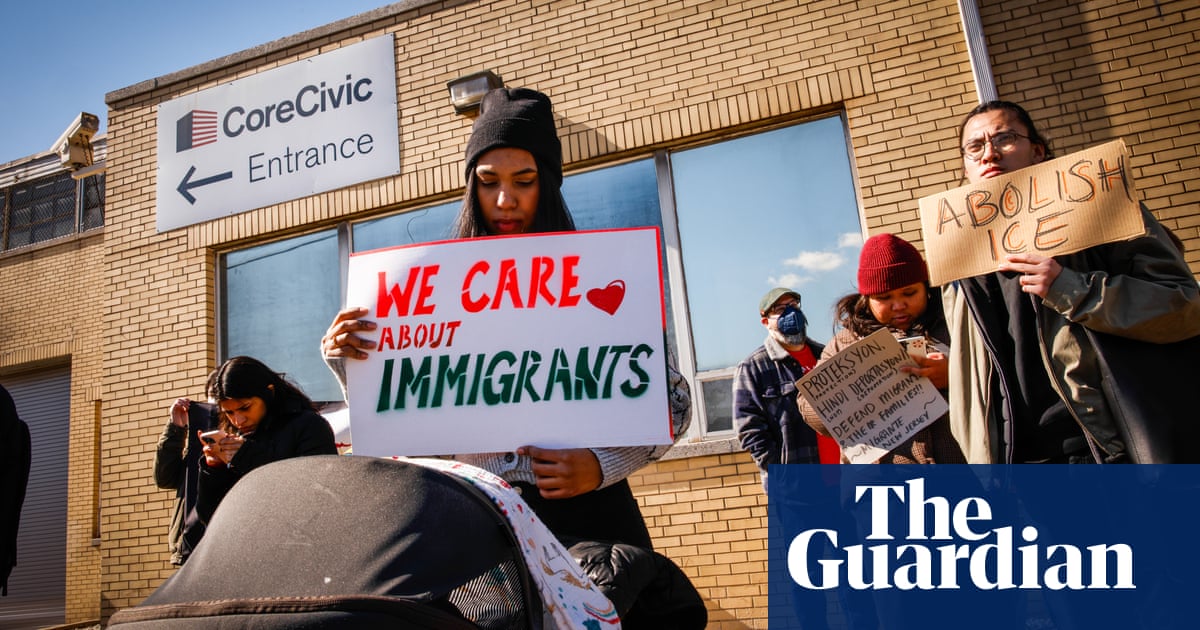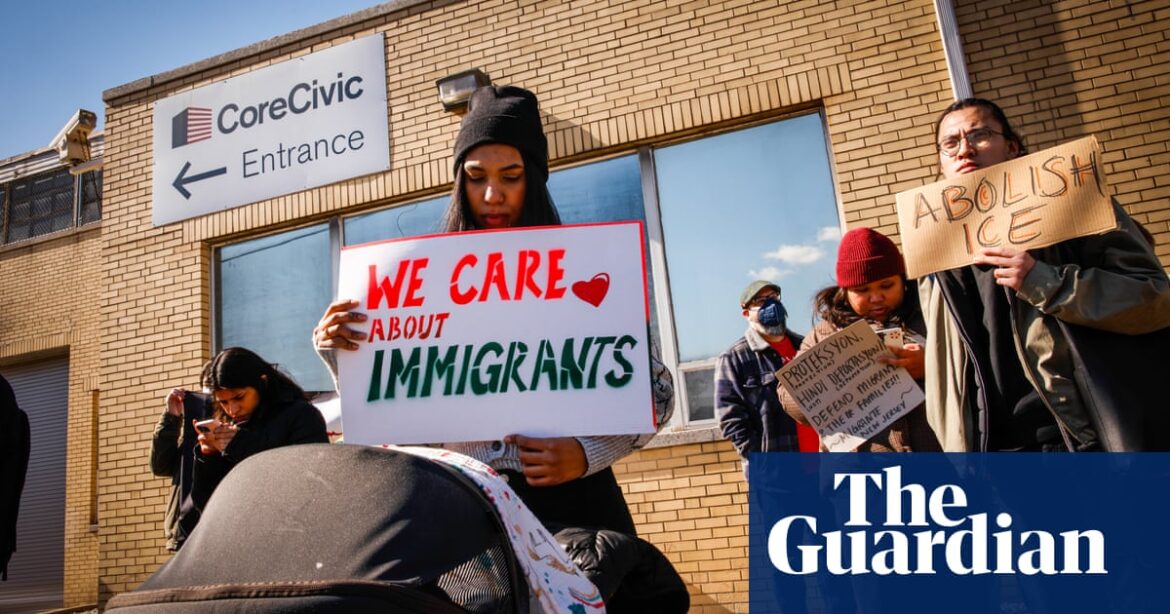
Venezuelans with legal permission to live and work in the United States are being unlawfully arrested by federal authorities at their homes, in their cars, at regular immigration check-ins and on the streets, attorneys say.
They are then stuck in immigration detention around the country, sometimes for weeks, despite the law explicitly banning the government from keeping them behind bars.
“I’ve seen a lot of terrible policies, and a lot of mistreatment, and government abuses and misconduct and, you know, even wrongful deportations,” said Sirine Shebaya, executive director of the National Immigration Project, an organization of attorneys, advocates and community members based in Washington DC.
“But this level of impunity and lack of even a pretense of following legal standards or thinking about the facts of someone’s situation before targeting them is something that I truly have never seen before,” she added.
The Venezuelans who are being apprehended have what is called temporary protected status (TPS), which allows people to stay in the US short term and apply for work permits when it’s unsafe for them to go back to their home countries because of extraordinary circumstances such as political unrest or a natural disaster.
Venezuela qualifies for a TPS designation because of an ongoing crisis where its president, Nicolás Maduro, is using security forces to imprison and abuse his critics while the vast majority of citizens endure intimidation and desperate poverty. The ensuing fallout has forced nearly 8 million Venezuelans to flee their homeland, whether because of potential persecution or simply the impossibility of surviving without potable water, reliable electricity and other household basics.
Although most Venezuelan immigrants and asylum seekers have settled elsewhere in Latin America, in recent years an increasing number have traveled farther north to the US. In recognition of their inability to safely return home, the federal government has allowed many of them to qualify for TPS.
But after the outgoing Biden administration extended these protections for Venezuelans, the new Trump administration’s homeland security secretary, Kristi Noem, quickly tried to revoke them once in office, rendering people who are legally in the country now vulnerable to deportation and, meanwhile, being unlawfully thrown into detention.
A federal judge has since paused Noem’s attempt to terminate TPS for Venezuelans, providing a much-needed if temporary reprieve for 350,000 people who would have lost their legal status come 7 April. The judge wrote in his order that the secretary’s actions could “inflict irreparable harm on hundreds of thousands of persons whose lives, families, and livelihoods will be severely disrupted, cost the United States billions in economic activity, and injure public health and safety in communities throughout the United States” – the very opposite of the sort of warnings Donald Trump’s Make America Great Again (Maga) movement puts out.
Yet even as a battle over the protections plays out in the courts, the Trump administration has been pre-emptively arresting Venezuelan TPS holders and keeping them in bleak US Immigration and Customs Enforcement (Ice) facilities. This is despite the law saying that someone with TPS “shall not be detained” based on their immigration status. There are narrow exceptions, but attorneys who spoke to the Guardian say none of the myriad cases they’ve seen so far would apply.
It’s unclear why immigration officers have been going after these legal immigrants, though one conjecture is that the Trump administration is preparing for mass deportations in case Venezuelans do end up eventually losing TPS.
“To some extent, I think it’s hard to know whether what’s happening here is a concerted policy or instead just a lot of rogue activity,” said Ahilan T Arulanantham, co-director of the Center for Immigration Law and Policy at the University of California at Los Angeles (UCLA) School of Law.
“I think it’s possible that no Ice official was willing to write down that ‘we want to jail Venezuelan TPS holders in advance because we think that TPS will end soon’, because doing that would be illegal,” he continued, “but that nonetheless they were willing to sort of send the message out that this would be a useful thing to do in order to swiftly deport a lot of Venezuelan TPS holders, you know, if and when the TPS grant termination takes effect.”
Venezuelans with TPS have faced immigration enforcement in Virginia, New York, Texas and New Mexico, with no changes in their cases that would explain why. In one instance, a man was complying with his supervision rules and attending an Ice check-in when he was handcuffed and held in custody in New Mexico for six weeks. He couldn’t work, was separated from his long-term romantic partner, and felt officials were provoking him to agree to leave the country despite his right to stay.
The man has documentation proving he has no criminal record in Venezuela, and he has not committed any crimes in the US. But he has tattoos of his mother’s and daughter’s names. Tattoos seemingly put him on the US’s radar as a potential member of the transnational criminal organization, Tren de Aragua (TdA). The US government has been using the TdA label as carte blanche on multiple fronts to dragnet people accused of crimes as well as those who are not, and to often bypass due process, while employing abnormal procedures and abstruse legal arguments.
after newsletter promotion
“Venezuelan men are being painted as TdA members, as dangerous gang members, at like the highest levels, by President Trump himself,” said Zoe Bowman, an attorney at Las Americas Immigrant Advocacy Center, which is based in El Paso, Texas. “And so they’re trying to show people that to them, it doesn’t matter what kind of status you have – that they have the power to detain you anyways.”
The man has since been released based on a temporary restraining order from a judge, which seemingly prompted Ice to also let out other TPS holders who had been detained in the area, Bowman said.
But the man is still being forced to wear an ankle monitor so that Ice can track him. And though it isn’t working properly, he’s too afraid he’ll be detained again if he tries to go into a government-affiliated office to get it fixed.
“This is mental anguish for him,” said Crystal Sandoval, director of cross-border strategies at Las Americas.
Likewise, in the DC area, a couple was arrested twice – once at home, once in their car, both times in front of their children. The Trump administration accused them of crossing the border unlawfully in 2022, a criminal charge that Shebaya, of the National Immigration Project, said immigrants are suddenly being prosecuted for now, several years after they entered the country.
Ice later tried to assert the couple was also connected to TdA, which was completely baseless, Shebaya said. At a hearing over their confinement, a judge ordered them released immediately, letting them freely walk out of the courtroom. “That is how little basis there was for their detention,” Shebaya said.
“I think that what we’re seeing right now is just a blatant disregard for the law,” she added. “And it is going to be very much up to us as a community and the courts to really hold the administration accountable and say: ‘Even if you have an agenda that you’re trying to pursue, there are legal boundaries that cannot be crossed.’”
Source: theguardian.com



